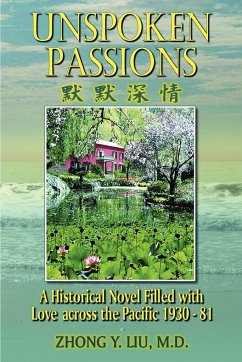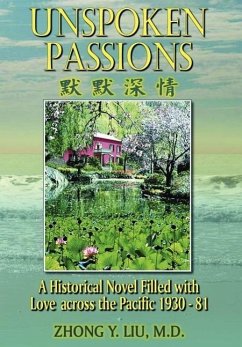Same as the author's Chinese novels published respectively in California, China, and Taiwan, this English version tells about a Dr. Wang's rocky emotional life. He has been romantically involved with three women at different phases of life. His first adolescent love was an American girl, Cox, who is born in China. In his twenties he meets Dr. Wu, his second love. Both end abruptly against their will in pain because of politics. After barely surviving the cultural Revolution, he comes to America in the late 1970s. Here he meets a young nurse, Guan, from Hong Kong, but twenty years younger. At ending of the story, Dr. Wang and these three women have a chance to meet at a party in Los Angeles. The unspoken passions between Wang and his former loves have persisted across the Pacific over the years. The congregation learns that the 50-year-old bachelor will marry one of the three women. The reunion is bitter and sweet. It reflects Dr. Wang's miseries in his life, an epitome of China's modern history, like 'Dr. Zhivago' for the Russians. What we see here is a special slant on China's modern history that would lead to the current rapid rise, a reaction to its darkest age showcased by Dr. Wang's miseries. But who will be Dr. Wang's bride? Being a psychiatrist, the author uses knowledge of the subconscious to create the characters and dreams to enrich the expression in the novel. It was marked by a Chinese national psychiatric journal as 'A living textbook in psychodynamics."
Hinweis: Dieser Artikel kann nur an eine deutsche Lieferadresse ausgeliefert werden.
Hinweis: Dieser Artikel kann nur an eine deutsche Lieferadresse ausgeliefert werden.







